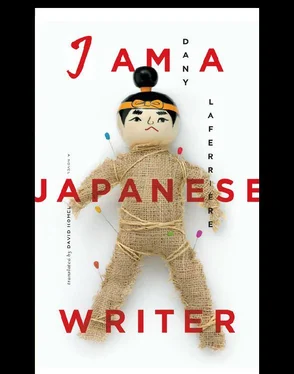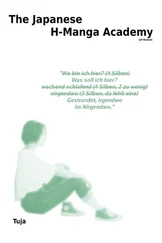WHAT GOOD IS a secret if it lies hidden in the deepest reaches of a person? Can it be forgotten? Is it a secret if you forget it? Where do forgotten secrets go? And what is a secret anyway? A thing you want to shout from the rooftops but know you can’t. A virus placed in quarantine. It doesn’t only belong to the one who keeps it. Where can it be hidden? Somewhere in your body. But not in the heart; there are already enough passions crowded in there. Bury in it your flesh. The famous promise never to reveal it. One of the two holders of the secret has given it too great an importance, while for the other it’s just an everyday story. The one whose secret it is ends up reactivating it in the other’s mind. Because a forgotten secret is a danger. It can burst forth at any moment in the middle of a wine-fueled conversation. By trusting another person with your secret, you give him absolute power over you. But you bind your fate to his as well. And so the secret has a sexual aspect. Someone gives himself to another. Agrees to be naked. Lets that person enter his private being through the back door. The narrow gate of the ass. You don’t hide your secret in your heart, but in your ass. Hence that cry of despair, just before talking: “I’m in deep shit!” What you really want is to drag the other person into your shit. We’re behind the scenes — the obscenes. Where everything seems truer. Whereas actually, the ceremony is extremely codified. Nothing is more rigorously governed than the atmosphere of a secret. You don’t reveal a secret without a ceremony. You set up a meeting because it’s not done over the phone. You choose a quiet restaurant (or a bedroom). It takes all kinds of time before you get to the real subject. The one receiving the secret has to wait until the other agrees to talk about it. It’s a long process and silence plays an important role. The more banal the secret, the longer the waiting time. True, we don’t know who is passing out the gold stars here. Then you test the other person to see if he’s worthy of the secret. Even if it’s your best friend. You have to know what a secret is in order to hear one. You don’t confess to a murder or an act of incest every day. Since it’s often something that touches the ego, you have to make sure the other person won’t laugh at you, or say, off-handedly, “Oh, that’s nothing,” then confide that he slept with his mother. That’s not elegant: one secret must never cross paths with another. Yet some derive pleasure in watching them touch each other. One secret always hides another — the one that you really do want to hide. There are layers of secrets. When everything is secret, you wonder what’s left that’s really secret. Something spontaneous, perhaps.
WHEN I’VE READ too much at the library, I go and relax in the little park at the top of the hill. I sit down on a bench in the sun and think about the Midori book. Though I’ve been trying since the very beginning to distance myself from writing, I go right back to it every time. Why isn’t there another way of doing it? Through assertion, for example. I assert that I’ve written a good book about the multiple lives of Midori and her group (I used images from the short film to reconstruct the troubling atmosphere of those quiet days). I already have the title: A Song for Midori. I’ve said it before, once you have a good title, the rest falls into place. You just have to wait. That’s not so easy. It’s a lost art. I can’t even take a good nap, let alone empty my head. A film or a book always starts off great. You have that clean energy that beginning something gives you. But after the first quarter, it goes off track, and every time for the same reason: you’re not letting things follow their natural course. It’s not that different from planting peas: you make a hole, you put the seed in and cover it over with earth, then you water it and move on. No use waiting to see if it’ll sprout. You have to trust nature’s healthy logic. Literature doesn’t like those people who wait for it, sitting like fools in front of a typewriter. I go out for a breath of fresh air. Two guys are unloading cases of beer. A black man and a white man. I think of the south of the United States and Faulkner. And I fall out of my simple little story. Here I am back in the political world out of sheer lack of concentration. Basho’s art is one of concentration. I should have learned that lesson after all this time. The truck is spitting black smoke in front of the bar. One of the two men is naked from the waist up. The other guy is running with sweat. They’re working fast, talking the whole time, telling stories. Real pros. I write fast too. Maybe badly, but always fast. I assert that I am the fastest sprinter of my generation. People should take my word for it, because not everyone makes such audacious claims, saying he’s the best. In other trades, yes — but not in literature. Athletes don’t hesitate to say they’re out to win gold. But writers get artistically fuzzy when you mention awards. They should seek inspiration from kids — they don’t think twice about showing off their biceps. The problem is, people distrust those who move through life with an open face. And people also believe, naively, that art isn’t created in a gym. In fact, you have to train hard, which is why I’m drenched in sweat. I picture myself again in Midori’s universe. Before my closed eyes, scene by scene, the entire black-and-white film of my stay there rolls past, with Hideko, Noriko, Fumi, Tomo, Haruki and Eiko. I picture myself walking in Basho’s footsteps. The purple party at Midori’s place. Wandering through the city. The brilliant landscapes of autumn. Already the air is warmer beneath this splendid sun. Its heat spreads across my face. I could spend days on this park bench watching the young squirrels climb trees. I feel the surrender of sleep overtake me. I shiver: a cloud has passed by. Everything will disappear (what we lived and what we dreamed). A radioactive future awaits us.
I'M NOT BORGES AND MR. TANIZAKI ISN'T MR. TANIZAKI EITHER
I SLOWLY OPENED my eyes, only to discover Mr. Tanizaki’s laughing round face.
“It’s like a revolution over there. Your book is becoming a social phenomenon.”
“What book? I didn’t write any book.”
“I mean the book you’re writing.”
Mr. Tanizaki was completely wound up. He waved a slender volume in front of my face. I looked at it but couldn’t make out a single word: it was all in Japanese. He pulled it away.
“The title is ‘I Am a Malagasy Writer’ and it’s written by a Japanese guy.”
“So what?”
“That’s how young writers are displaying their contempt for literary nationalism. For them a Japanese writer doesn’t necessarily write a Japanese book. In fact, a Japanese writer doesn’t even exist any more.”
“Too bad, because that’s what I am.”
“Over there, their new slogan is, ‘A writer is a writer. A Japanese is a Japanese.’ For them, these are parallel lines. They paraded around the Tokyo Book Fair chanting that slogan. There was something about it on the news, in between a story about agriculture and the latest banking scandal. Such a thing would have been unthinkable just a month ago: literature on the news. And in Japan.”
He was as red as a squash player at the end of a game.
“And then there’s the tv host who wrote some shitty book.”
He seemed to have recovered the energy of his student protest days.
“It’s called ‘I Am a Japanese tv Host.’ But everyone let him know that he was completely not getting it. He was trying to proclaim his Japanese pride. Baudrillard — you know, the French philosopher — wrote a long article about how it sounds less Japanese when a Japanese says he’s Japanese.”
Читать дальше












